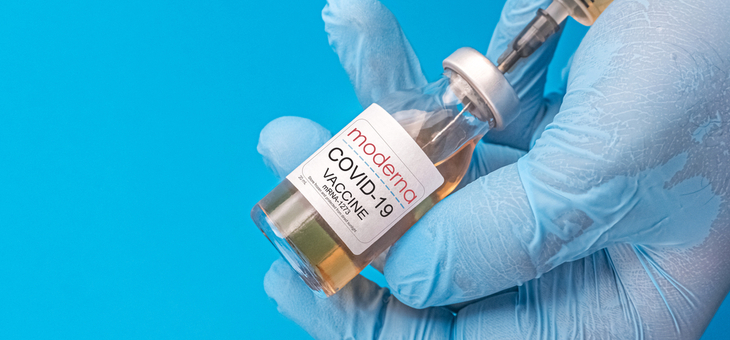Australia’s vaccination program has taken another twist. In a surprise announcement overnight, US-based pharmaceutical giant Moderna revealed that it had struck an agreement with the federal government to supply 10 million doses of its vaccine this year and another 15 million shots in 2022.
Moderna has not revealed when the first batch will be delivered, saying it would submit an application for regulatory approval to the Therapeutic Goods Administration (TGA) “shortly”.
The TGA took about 11 weeks to approve the AstraZeneca vaccine and 12 weeks to approve the Pfizer jab.
The Moderna vaccine uses mRNA technology – like the Pfizer shot – and introduces genetic material to elicit an immune response.
Clinical trial results found it had 94 per cent efficacy and nobody vaccinated in the 30,000-participant trial in the UK developed severe disease. The World Health Organization (WHO) says the vaccine delivers protection 14 days after the first dose and is effective against the virus variants. It is being widely used in the US, Canada, Europe, United Kingdom, Israel, Japan and Singapore.
Read more: What to do after you receive your vaccination
So, will this help fast-track the country’s trouble-plagued vaccination program that was to see the bulk of the population vaccinated by the end of October?
It seems no. And the Moderna vaccine, when it is approved and arrives in bulk, will be directed to under-50s – because over-50s are generally receiving the AstraZeneca jab.
The 10 million doses expected this year would inoculate five million Australians, given two jabs are needed for maximum protection. Stéphane Bancel, Moderna’s chief executive officer, said the company was involved in continuing discussions with Australia on local manufacturing opportunities.
Treasurer Josh Frydenberg announced a $1.9 million spend on the vaccination program in Tuesday’s Federal Budget and would not guarantee every Australian would be fully vaccinated by 31 December. The Budget papers say a “population-wide vaccination program is likely to be in place by the end of 2021” but that outcomes “could be substantially different to the forecasts”.
The Moderna vaccine is Australia’s fourth vaccine option, in addition to Pfizer, the locally made AstraZeneca vaccine and Novavax. Australia has ordered 51 million doses of the Novavax jab but it may not be available in September as anticipated due to approval delays.
Read more: Australians support mandatory COVID vaccinations
Despite the opening of vaccine registration to over-50s, just 2.7 million vaccine doses were administered nationwide as at 10 May. Weekly vaccination rates would need to triple to meet the new Budget target.
In other news overnight, the Independent Panel for Pandemic Preparedness and Response (IPPPR) says the international health system led by the WHO was “clearly unfit” to prevent another pandemic and wants urgent and radical reform.
The worst ravages of the pandemic could have been avoided had the world not “lost” a month at the start of the crisis to indecision and complacency, the first major independent review of the crisis concludes.
“The system as it stands now is clearly unfit to prevent another novel and highly infectious pathogen, which could emerge at any time, from developing into a pandemic.”
The review was co-chaired by former New Zealand prime minister Helen Clark and former Liberia president Ellen Johnson Sirleaf.
The 86-page report describes the WHO as “underpowered and underfunded” and hamstrung by conservative international regulations that prevented it from acting “immediately and independently” with respect to China.
“February [2020] was a month of lost opportunity to avert a pandemic. Most countries chose to ‘wait and see’, rather than take firmer measures that could have contained the virus,” said Ms Clark.
“For some, it wasn’t until hospital ICU beds started to fill that more action was taken – and by then it was too late.”
Read more: COVID patients report symptoms six months after infection
The review recommends that a new Global Health Threats Council, led by heads of state rather than by officials, be created to sit above WHO and within the orbit of the United Nations.
The new body would be vested with legal powers – cemented via a new international Pandemic Framework Convention – to monitor and test member states pandemic plans and response and to “hold actors accountable”, the London Telegraph reports.
The new convention should be signed within six months and would, among other things, “establish a new global system for surveillance based on full transparency”.
The report says the world was repeatedly warned about the potential threat of a pandemic ahead of the COVID-19 outbreak but failed to act.
What has been your experience with the vaccination program? Is it finally getting into top gear? Are you pleased that a global response to a pandemic is being reassessed?
If you enjoy our content, don’t keep it to yourself. Share our free eNews with your friends and encourage them to sign up.

